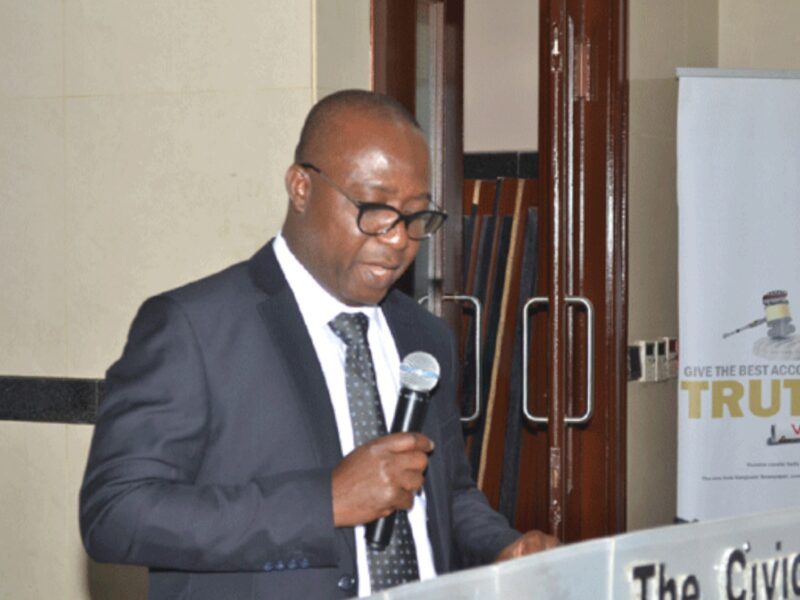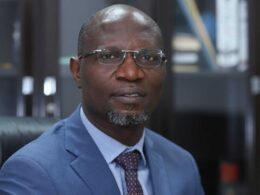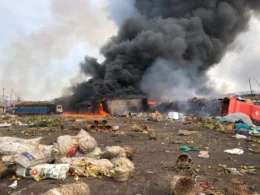Anaba also drew attention to conflict-affected regions like the Northeast, where children are forcibly recruited as combatants, losing their innocence and futures. “These stories must be told,” he stressed, calling for solutions journalism to take center stage by not only reporting on challenges but also exploring and advocating for actionable solutions.
Lagos, Nigeria — The President of the Nigerian Guild of Editors (NGE), Mr. Eze Anaba, in collaboration with the United Nations Children’s Fund (UNICEF) and other stakeholders, has called on Nigerian media practitioners to adopt solutions journalism as a tool for promoting child rights advocacy.
The appeal was made at a symposium in Lagos focused on reinforcing the media’s role in mainstreaming child rights. Stakeholders at the event emphasized the urgent need for multi-sectoral collaboration to address challenges facing Nigerian children, who constitute nearly half of the country’s population.
Speaking on the theme, “Reinforcing the Role of Media in Mainstreaming Child Rights,” Mr. Anaba highlighted the transformative power of storytelling in journalism.
“As journalists, editors, and media practitioners, we wield a unique power: the power of storytelling. The narratives we create can inspire, mobilize, and drive change,” Anaba said. “We must ensure that our children remain ahead in all we do, with the objective of making our country and the world a better place for them.”
Describing the plight of Nigerian children as a “national emergency,” Anaba urged collective efforts among journalists, policymakers, and health professionals to prioritize child rights.
“Nigeria is home to around 220 million people, and nearly half of them are children. Millions of these children are out of school. They are victims of violence, abuse, child marriage, and labor. Many remain unvaccinated and vulnerable to preventable diseases,” he said.
Anaba also drew attention to conflict-affected regions like the Northeast, where children are forcibly recruited as combatants, losing their innocence and futures. “These stories must be told,” he stressed, calling for solutions journalism to take center stage by not only reporting on challenges but also exploring and advocating for actionable solutions.
UNICEF Highlights Dire Statistics
UNICEF’s Country Representative, Cristian Munduate, echoed the urgency of addressing child welfare issues. She revealed that 2.1 million Nigerian children have not received any vaccines, leaving them exposed to preventable diseases. Additionally, nearly 10 million primary school-aged children are out of school due to poverty and insecurity.
“Sixty-seven percent of Nigerian children experience multidimensional poverty, facing deprivations such as poor health and lack of education,” Munduate noted. She praised previous media efforts that influenced policy changes and urged journalists to maintain pressure on stakeholders to safeguard children’s futures.
“Childhood is short. We must act now to secure a better future for our children,” Munduate said.
Tunde Onakoya, founder of Chess in Slums Africa, emphasized the risks posed by the growing number of out-of-school children.
“The Nigerian child represents hope and potential, but potential means nothing if it’s not realized,” Onakoya said. “If we have 20 million children out of school with no skills or education, how will they participate in the future economy? Without education, they will become liabilities rather than assets.”
Onakoya warned that Nigeria’s future workforce is at stake, underscoring the need for urgent action to empower children with education and skills.
The symposium concluded with a call for collective commitment from all sectors to prioritize the rights and well-being of Nigerian children. Stakeholders reiterated that the media must play a pivotal role in holding the government accountable, amplifying the voices of vulnerable children, and celebrating successes such as child-friendly policies and impactful community solutions.
“This is not just a call to action—it is a call to responsibility,” Anaba said.










Join our Channel...